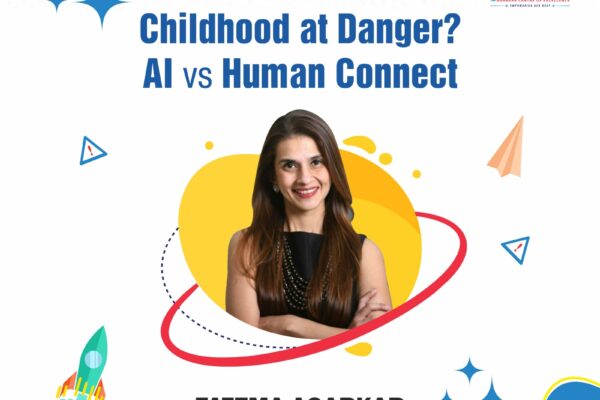I vividly recall – I was only 18 years old when I embarked on my first part-time job. As a shy, socially awkward teenager eager to earn my own money and shed my social inhibitions, the job was an ideal entry point for me. In hindsight, the actual work was quite simple. My task was to collect 3,000 names and email addresses from strangers in five different public locations across Mumbai. A significant part of the job involved approaching pedestrians, requesting five minutes of their valuable time, and gathering their contact details. However, believe me when I say this, it was much harder than it sounds. Anyone familiar with Mumbai would understand – people are always in a hurry, and one must keep pace or risk being left behind. This experience taught me invaluable lessons in courtesy, humility, approachability, diligence, and perseverance. Gradually, taking up various part-time roles became a habit throughout my college years, refining my skills and preparing me for the corporate world by the time I graduated.
Looking back now, I feel fortunate to have started so young. A lot of the credit goes to my parents, who encouraged me to explore the world fearlessly while instilling enough wisdom to distinguish between callousness and responsibility. They instilled a strong sense of integrity, teaching me that reputation is more valuable than money, and the path to success is rarely a smooth freeway – it’s one with many twists and challenges. Yet, one must have the courage to take risks, embark on the journey, and embrace each experience to feel fulfilled. This journey has shaped me into a well-rounded individual in business and leadership and a supportive parent who wishes the same for his children.
Today’s Youth and Their Challenges:
Most young adults aged 15 to 18 are brimming with curiosity yet struggle with significant confusion regarding academic and career choices. Fortunately, today’s youth are tech-savvy and capable of handling information, researching areas of interest, and pursuing work experience. The evolution of formerly “unconventional careers” (which my generation viewed as “expensive hobbies with no future”) into viable mainstream professions has created new opportunities for the youth. This shift has increased the likelihood of achieving (and even surpassing) life goals through non-traditional careers. However, the classic dilemma of “having too many options” can lead to a lack of focus and persistence in pursuing excellence. Excellence, the key to reaching the top, is often the differentiator in highly competitive environments. Ironically, talent alone rarely predicts future success. Success lies in 1/ evaluating the risks involved, 2/ taking small, calculated steps to test one’s abilities, and 3/ regularly pushing beyond one’s comfort zone. Unfortunately, “helicopter parenting” has become widespread, leading to overprotected children whose natural curiosity is replaced by a focus on superficial measures of success. This pendulum swings between celebrating mediocrity and creating hyper-competitive pressures, leaving children anything but the curious explorers they are naturally meant to be.
The Role of Parents, Teachers, and Industry Professionals:
Children naturally look up to their parents and family members as role models. With this inherent dynamic, parents play a major role in shaping their child’s future. Thankfully, with rising education and literacy rates, we have seen positive generational changes. As family incomes improve, thanks to both parents balancing careers and parenthood, children benefit from quality education from a young age. However, comfort can breed complacency, which has become a common issue among today’s youth. Addressing this issue early in childhood is crucial.
Parents who foster an enterprising atmosphere at home and encourage their children to explore their talents often ignite a passion for discovery. A personal example comes to mind. In 2023, my elder son’s school organized a Christmas Carnival, allowing students to set up merchandise stalls. My son, who was fascinated by origami at the time, loved making bookmarks. To teach him basic business concepts, I encouraged him to sell his bookmarks at the carnival. The goal was to introduce him to investments, products, marketing, sales, and customer relations, foundational aspects of management. Rather than a textbook approach, we discussed his business model, calculated costs, set a price, planned packaging, and executed the sale at the carnival. While we barely made a profit, the experience was immensely rewarding for him for two main reasons: 1/ He realized he had my support, regardless of the outcome, and 2/ he understood there are multiple ways to achieve goals through persistence and effort. Hopefully, this experience will stay with him, reminding him that he can pursue new ideas without fearing failure.
Teachers also play a crucial role in influencing students’ long-term growth. They carry the immense responsibility of shaping young minds, especially in primary and middle school, where children are most impressionable. Teachers leave a lasting impact, often influencing students for life. Thus, it is essential for teachers to foster creativity and move beyond outdated success metrics. Celebrating problem-solving skills, diverse perspectives, and imaginative expression enhances learning more effectively than a rigid textbook approach. While I understand the importance of meeting curriculum standards and maintaining classroom discipline, engaging students in discussions on complex topics helps them develop open-mindedness and respect for diverse opinions.
Regarding industry professionals, I find it ironic that many organizations in India debate whether to offer internships to young adults, citing age and “immaturity” as concerns. It’s ironic because maturity stems from experience, which comes with exposure. Internships provide young people with critical experiences, preparing them for the corporate world before they enter it. Unfortunately, such opportunities are rarely available to young students, to the detriment of both the industry and the individual. Speaking from personal experience, internships should never be confused with employment. Instead, they are an avenue to share industry insights with potential future hires who demonstrate values aligned with the organization’s ethos. It’s a calculated risk to give a young person a chance to learn about the professional world in a supportive, non-judgmental environment. This is particularly valuable for pre-teens and early teens, whose interests are developing but whose career goals remain uncertain. Industry mentors could serve as the third pillar of support, helping children flourish by guiding them through the real-world challenges they will eventually face.
Conclusion:
Ultimately, before we encourage children to take risks and be go-getters, we as parents, teachers, and industry professionals must set the example. We must open our minds and hearts to their curiosity, offering them opportunities to gain firsthand corporate exposure. By nurturing their strengths and gently pushing them to step out of their comfort zones, we prepare them to become well-rounded, future-ready citizens. The end goal is to help children become individuals who understand their responsibilities to the world while retaining and growing their unique identities.












